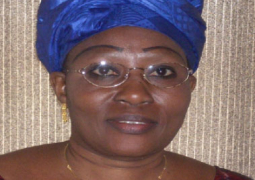Press Release
The global recession has reignited two perennial crises. The first is the crisis of faith in global integration. With falling demand for and prices of commodities, and with falling private capital, remittance and aid flows, do the risks of globalisation for Africa now outweigh the benefits?
The second is the perennial crisis of faith, or direction, in African development. Should it be trade not aid for the developing world? Has aid failed and should it be replaced by private investment even as private capital flows fall?
In truth, as many have sensibly argued, these are not the choices they are posed as. Aid, trade and investment are all needed and are facilitated by deeper global integration. They are all mutually dependent, and none must drive out the other.
But as
It is through regional trade and infrastructure development that African countries will build the economies of scale necessary to make swift gains on growth and poverty reduction. Strong regions will stimulate domestic private sectors and attract investment from outside
This means opening up regional markets, as the Southern African Development Community (SADC) have begun to do through the launch of their Free Trade Area, and as the Economic Community of West African States (ECOWAS) will seek to do by introducing a single currency.
Strong regional economies will also depend on regional cooperation on infrastructure; the roads, railways and ports that literally keep the wheels of trade turning. This is why the North-South Corridor conference this year, which the
And it is the regions that are best equipped to tackle climate change, which risks increasing
borders. Regional initiatives such as the
Some of the most important moves towards deepening democracy and accountability in
Elections and Governance clearly sets out where African countries would like to be. The
African Peer Review Mechanism and SADC's peer-to-peer democratic review processes
are two fine examples of where progress is already underway.
ECOWAS has played a critical role in trying to reverse recent unconstitutional changes of government as has SADC. The African Union, under Jean Ping, has consistently stuck to the principle agreed to by its members that it will not undemocratically choose new leaders - thereby creating a powerful source of peer pressure.
Regional justice mechanisms will also be an important part of developing a culture of accountability across
The growing importance and strength of
The international community will benefit from the stronger global engagement that a more integrated
But it's in the great gains that stronger regionalism brings at home that African countries and their people will first notice the difference.



